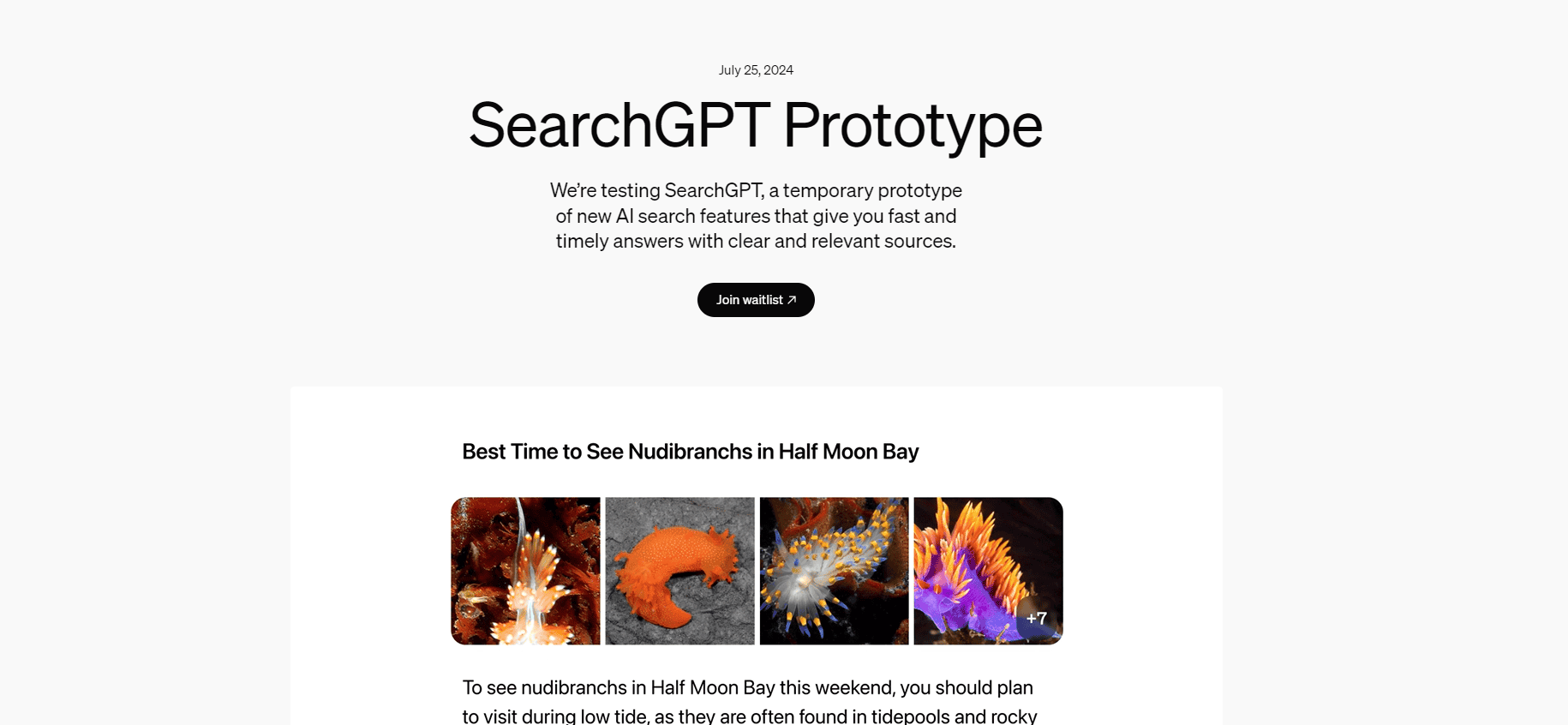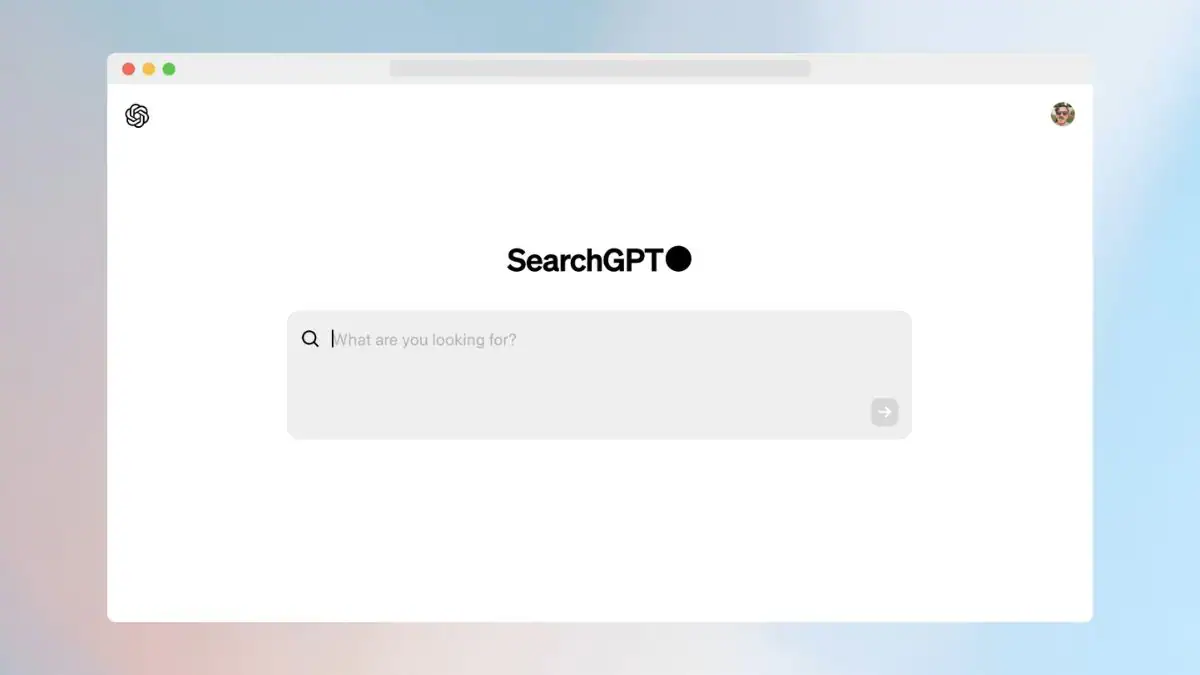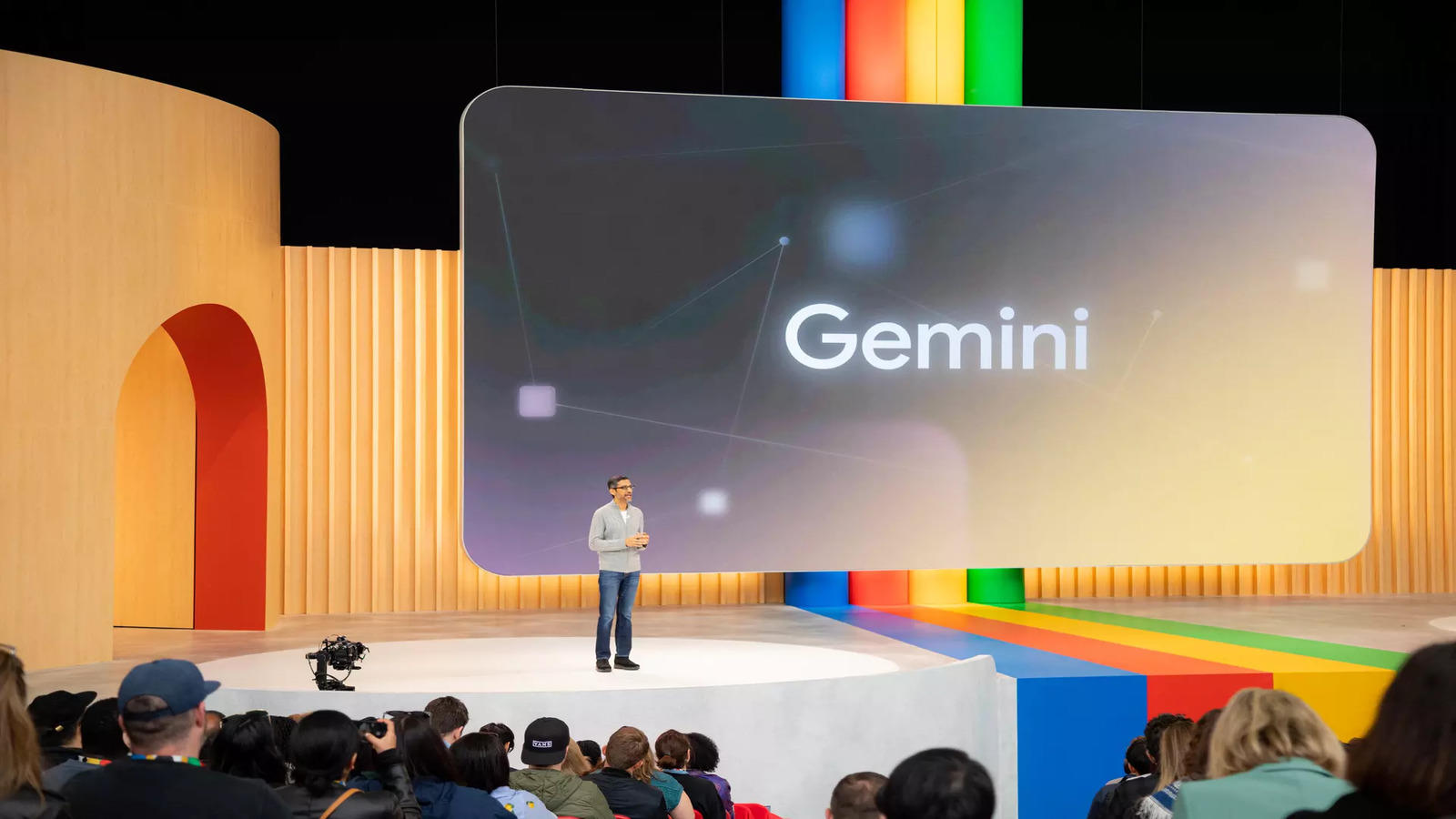
OpenAI unveils SearchGPT a major step to make Search revolutionize

OpenAI keeps pushing the limits of machine learning and artificial intelligence in a time when the digital world is constantly changing. “SearchGPT,” their most recent invention, has the potential to completely change how we use and interact with search technology. With this new search prototype, finding information should be easier, faster, and more intelligent. We will examine the definition of “SearchGPT,” its operation, accessibility, and possible effects on different industries in this thorough review.
What is SearchGPT?
OpenAI created “SearchGPT,” an enhanced search prototype that makes use of GPT-4, the most recent version of its Generative Pre-trained Transformer models, to improve the search experience. ‘SearchGPT’ leverages natural language production and understanding in contrast to conventional search engines that mainly focus on keyword matching and ranking algorithms to provide more precise and contextually relevant search results.
Key Features of SearchGPT
1. Natural Language Understanding: ‘SearchGPT’ performs exceptionally well in deciphering the subtleties of human language, which allows it to more precisely comprehend search requests.
2. Contextual Relevance: By taking into account the query’s context, the prototype can provide results that go beyond simple keyword searches and take into account the meaning and goal of the search.
3. Conversational Interface: ‘SearchGPT’ allows users to engage with it in a conversational way, which enhances the experience of conducting searches by turning them into a dialogue with an informed assistant.
4. Personalization: ‘SearchGPT’ can become more relevant and user-satisfied over time by learning user preferences and customizing search results to meet specific needs.
How SearchGPT works
Understanding the query
The first step for “SearchGPT” is to comprehend and analyze natural language queries. The technology deciphers the meaning behind a user’s question by analyzing its language. It deconstructs the question into its fundamental ideas and recognizes how they relate to one another.
Getting Results
After the inquiry has been comprehended, ‘SearchGPT’ uses its vast knowledge base and language creation skills to produce possible search results. Rather than merely locating papers with the requested keywords, it produces responses and provides an overview of data that directly responds to the user’s purpose.
Contextual Processing
Context handling is one of ‘SearchGPT’s’ main advantages. ‘SearchGPT’ keeps the context of past interactions when a user refines their inquiry or asks more inquiries. As a result, it may respond with greater coherence and relevance, simulating a human discussion.
Personalization and Learning
The ‘SearchGPT’ system gains knowledge from the way users engage with it. It collects information on user preferences, frequently asked questions, and comments on the outcomes. ‘SearchGPT’s’ algorithms are improved through this learning process, making its subsequent results more accurate and pertinent.
Accessible
Beta Testing
‘SearchGPT’ is currently in the beta testing stage. A small set of users, comprising researchers, developers, and industry experts, have been invited by OpenAI to test the prototype and offer feedback. Before a larger release, this stage is critical for finding any problems, gaining user feedback, and making the required adjustments.
Ready for Public
‘SearchGPT’ will be gradually made available to the general public via OpenAI. ‘SearchGPT’ will first be accessible via the OpenAI website and API, enabling developers to incorporate it into their services and apps. Afterwards, OpenAI hopes to collaborate with big digital companies to integrate ‘SearchGPT’ into well-known platforms, opening it up to a wider user base.
Subscription and Access
“SearchGPT” will be offered on a subscription basis, much like previous OpenAI products. There will be several levels of access, from feature-limited free trials to full access to all features premium subscriptions. This layered strategy guarantees that ‘SearchGPT’ can be useful to a broad spectrum of users, from infrequent searches to corporate clients.
Also Read: OpenAI releases ChatGPT-4o: Whats new in this updated model, all you need to know
Also Read: Google revealed Pixel 9 Fold Pro and Pixel 9 Pro series, which promises to be an impressive collection of new features.
Effects and Uses
Improving Complex Searches
‘SearchGPT’ offers a more user-friendly and effective search experience for regular users. ‘SearchGPT’ can yield more precise and contextually relevant results for a variety of purposes, including organizing a trip, gathering information for a school project, and recreational research. Additionally, the procedure becomes less unpleasant and more entertaining thanks to the conversational interface.
Professional and Academic Research
‘SearchGPT’ can be an effective research tool in scholarly and professional contexts. Researchers might save a great deal of time and effort because of its capacity to comprehend intricate questions and provide thorough answers. Furthermore, because of its capacity for learning, it can adjust to the unique requirements and preferences of researchers, yielding more specialized and beneficial data.
Business and Enterprise Application
‘SearchGPT’ offers a more user-friendly and effective search experience for regular users. This Prototype can yield more precise and contextually relevant results for a variety of purposes, including organizing a trip, gathering information for a school project, and recreational research. Additionally, the procedure becomes less unpleasant and more entertaining thanks to the conversational interface.
Accuracy
Although ‘SearchGPT’ is intended to yield precise and pertinent findings, flaws or biases may always exist in the generated responses. By conducting extensive testing and gathering user input, OpenAI is actively striving to reduce these problems. Users must understand, nevertheless, that no AI system is perfect, and they shouldn’t make important judgments only on what the system says.
User Adaptability
For certain users, it could require some time to adjust to a new search paradigm. Since traditional search engines have long been the standard, it can be difficult to adjust to changing user expectations and behaviors. To make this transition easier and guarantee that users can take full advantage of ‘SearchGPT,’ OpenAI is concentrating on providing user education and support.





